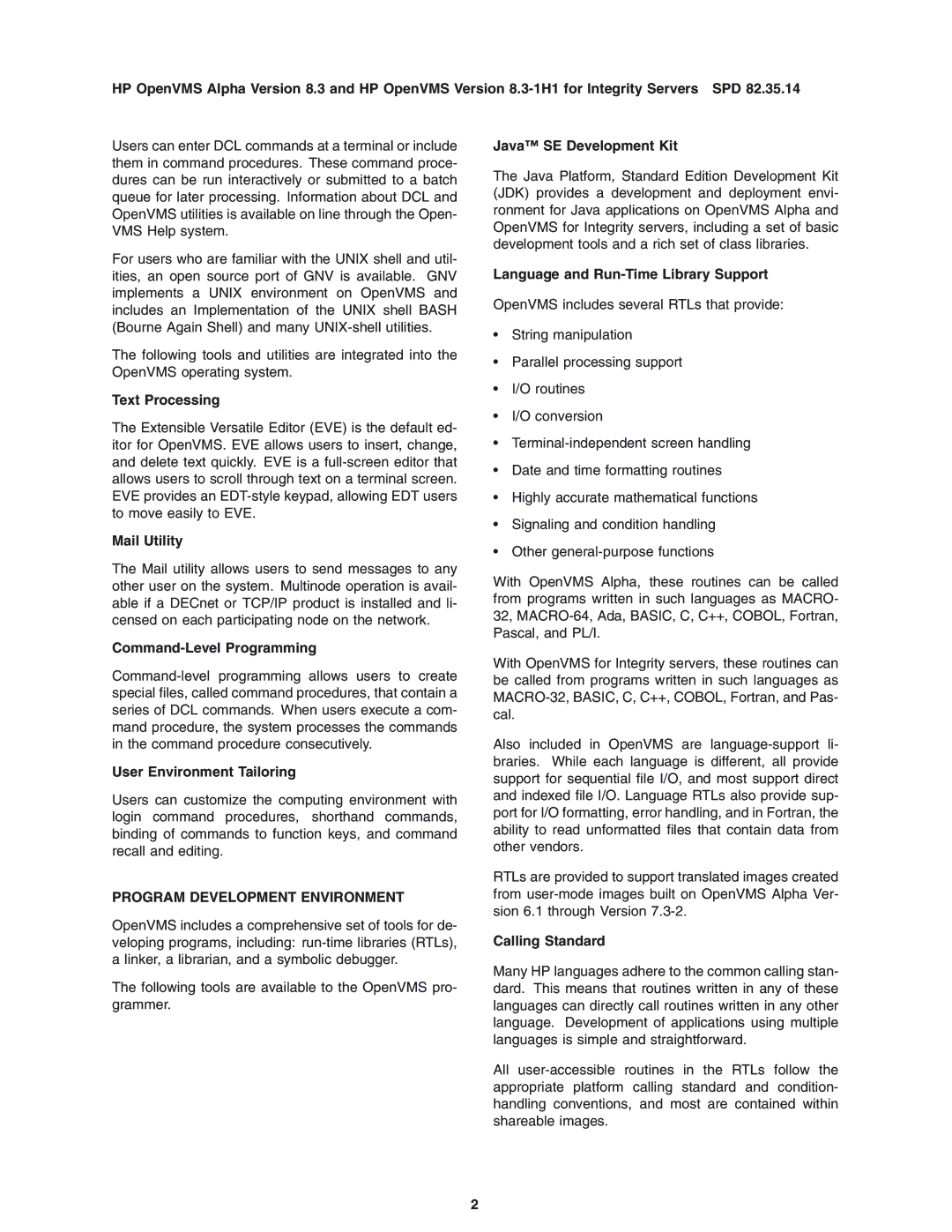HP OpenVMS Alpha Version 8.3 and HP OpenVMS Version
Users can enter DCL commands at a terminal or include them in command procedures. These command proce- dures can be run interactively or submitted to a batch queue for later processing. Information about DCL and OpenVMS utilities is available on line through the Open- VMS Help system.
For users who are familiar with the UNIX shell and util- ities, an open source port of GNV is available. GNV implements a UNIX environment on OpenVMS and includes an Implementation of the UNIX shell BASH (Bourne Again Shell) and many
The following tools and utilities are integrated into the OpenVMS operating system.
Text Processing
The Extensible Versatile Editor (EVE) is the default ed- itor for OpenVMS. EVE allows users to insert, change, and delete text quickly. EVE is a
Mail Utility
The Mail utility allows users to send messages to any other user on the system. Multinode operation is avail- able if a DECnet or TCP/IP product is installed and li- censed on each participating node on the network.
Command-Level Programming
User Environment Tailoring
Users can customize the computing environment with login command procedures, shorthand commands, binding of commands to function keys, and command recall and editing.
PROGRAM DEVELOPMENT ENVIRONMENT
OpenVMS includes a comprehensive set of tools for de- veloping programs, including:
The following tools are available to the OpenVMS pro- grammer.
Java™ SE Development Kit
The Java Platform, Standard Edition Development Kit (JDK) provides a development and deployment envi- ronment for Java applications on OpenVMS Alpha and OpenVMS for Integrity servers, including a set of basic development tools and a rich set of class libraries.
Language and Run-Time Library Support
OpenVMS includes several RTLs that provide:
•String manipulation
•Parallel processing support
•I/O routines
•I/O conversion
•
•Date and time formatting routines
•Highly accurate mathematical functions
•Signaling and condition handling
•Other
With OpenVMS Alpha, these routines can be called from programs written in such languages as MACRO- 32,
With OpenVMS for Integrity servers, these routines can be called from programs written in such languages as
Also included in OpenVMS are
RTLs are provided to support translated images created from
Calling Standard
Many HP languages adhere to the common calling stan- dard. This means that routines written in any of these languages can directly call routines written in any other language. Development of applications using multiple languages is simple and straightforward.
All
2
